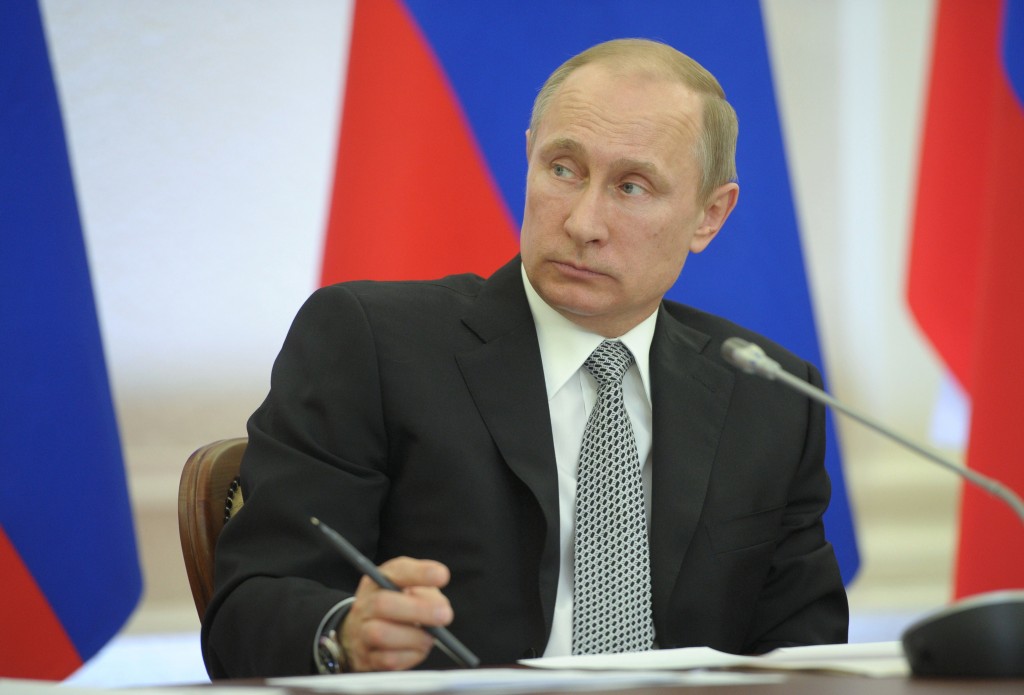The U.S. and other nations continue to impose sanctions on Russia following the retaking of Crimea and the presence of Russian troops in other parts of Ukraine. But are these meaningful deterrents, or just a slap on the wrist? We asked Nile Gardiner, director of Heritage’s Margaret Thatcher Center for Freedom.
The Foundry: Are the latest sanctions on Russia serious? What do they do?
Nile Gardiner: The latest U.S. sanctions are a step in the right direction, but they merely scratch the surface of the Russian political and financial establishment. They are designed to send a message to Moscow that its actions in Crimea and Eastern Ukraine are unacceptable—but the sanctions will likely have a very limited impact in terms of constraining Russian aggression against Ukraine. This is largely a symbolic gesture, rather than a battering ram against Putin’s imperial ambitions.
The latest U.S. sanctions unveiled yesterday target just seven Russian individuals and 17 financial entities linked to Russian President Vladimir Putin. The named individuals are now banned from traveling to the United States, and any assets they own in the U.S. have been frozen. The total number of Russian individuals affected by American sanctions now stands at 45, with 19 Russian firms targeted.
Government officials named on Washington’s new sanctions list include Dmitry Kozak, deputy prime minister of the Russian Federation, Aleksei Pushkov, chairman of the State Duma Committee on International Affairs, and Vyacheslav Volodin, first deputy chief of staff of the Presidential Executive Office. The list also named Igor Sechin, president of Rosneft, Russia’s state-controlled petroleum giant.
What about the European sanctions? Do they go far enough?
U.S. sanctions were accompanied by a new set of European Union sanctions against Russia. A further 15 Russian and Ukrainian individuals have been added to a list of 31 individuals sanctioned by the EU (for a total of 46).
Like the U.S. sanctions, the EU measures are extremely narrow in scope and will have a limited impact. Clearly, they do not go far enough. The 28-member union has been deeply divided on the Russia sanctions issue. Member states in Eastern and Central Europe have pushed for tougher sanctions measures, in contrast to major powers in Western Europe, including Germany and France, who have backed softer measures due to their close trade and investment ties with Moscow.
Is the Obama administration doing what it should at this juncture?
At this stage, the Obama administration could be doing far more in terms of economic sanctions against Russia. The list of Russian individuals and companies linked to the Putin regime and targeted by U.S. sanctions should be significantly widened, with a far bigger net cast by Washington.
In addition, the Sergei Magnitsky Rule of Law Accountability Act, which denies U.S. visas to, and places financial sanctions on, Russian individuals guilty of human rights violations should be swiftly enforced against all Russian officials involved in the invasion of Crimea and the incursions into Eastern Ukraine.
Far greater U.S. pressure should also be placed on America’s Western European allies to toughen their sanctions on Moscow. The issue of implementing hard-hitting measures against Putin’s regime should dominate discussions between President Obama and German Chancellor Angela Merkel at the White House this week.
Any sanctions regime against Russia must be combined with a comprehensive range of measures designed to constrain and repel Russian aggression in Eastern Europe and reassure NATO allies in the region. These should include:
- a powerful reiteration of America’s commitment to NATO’s Article 5;
- the establishment of a permanent U.S. military presence in the Baltic States of Estonia, Latvia and Lithuania;
- the lifting of restrictions on the export of natural gas to U.S. allies in Europe, with the goal of reducing energy dependency on Moscow;
- the immediate U.S. withdrawal from the flawed New START Treaty; and
- a firm commitment to a robust and swiftly implemented missile defense system in Europe.































